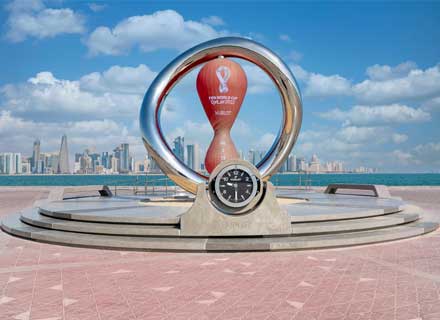S&P Global Ratings anticipates that Qatar’s GDP growth, which was aided in part by FIFA World Cup-related activities in 2022, will slow to 2.3% in 2023 from roughly 5% last year.
“The general government budget surplus will moderate to about 5% of GDP in 2023 compared with 10% in 2022, as oil prices (to which LNG contracts are linked) moderate from last year’s highs,” Trevor Cullinan, Director of S&P Global Ratings and other analysts said in the report.
Analysts added that the North Field Expansion (NFE) project will increase hydrocarbon output starting in 2025, accelerating growth momentum. The capacity for producing liquefied natural gas (LNG) is anticipated to have increased by nearly 60% from current levels by 2027.
LNG production levels will be largely flat until 2025, but increase about 30% over 2026-2027, “given our forecast that the full increase in capacity will take some time to materialize.”
The energy market’s steady shift towards greater usage of renewable energy sources is expected to cause a peak in LNG demand in the mid-2030s. Despite this, LNG will continue to be fiercely competitive even after 2030 due to being a low-cost supplier.
The NFE will start to increase revenue streams in 2026, adding to Qatar’s already robust fiscal and external net asset positions, which will continue to be a key rating strength.
LNG markets were upended by Russia’s invasion of Ukraine in February 2022. Qatar reduced production, which resulted in a shortage of gas. But recently, Qatar stated its phase one of the North Field expansion projects is expected to increase capacity by 43% from 77 million tons per annum (mtpa) to 110 mtpa by 2025. Phase two will further increase the production capacity from 110 mtpa to 126 mtpa, a total increase of 64% by 2027.
Meanwhile, around 40% of Japan’s yearly LNG imports which are handled by JERA (a joint venture between Tokyo Electric Power Co. Holdings and Chubu Electric Power) are again back in contract with Qatar.

